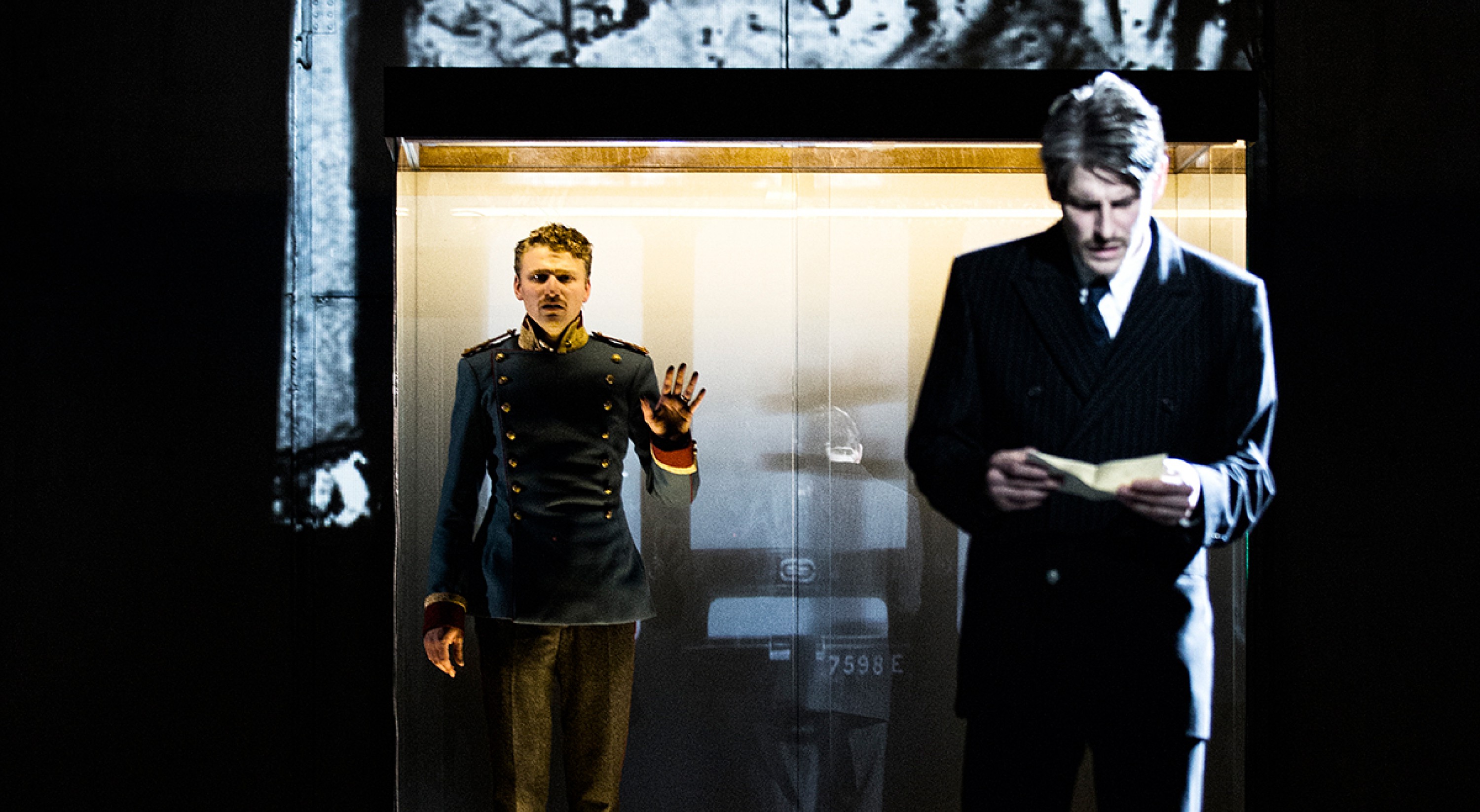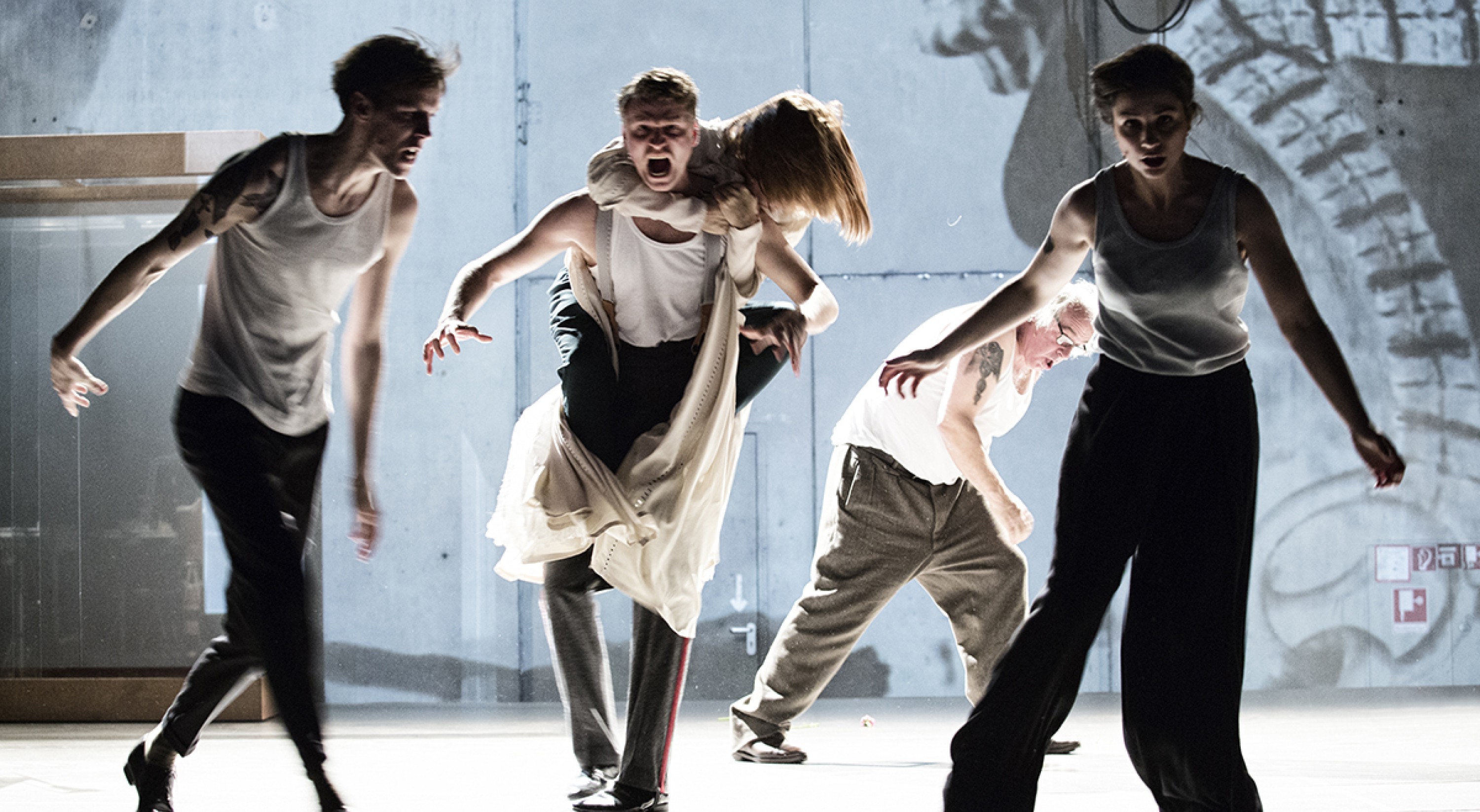Simon McBurney Complicité
Beware of Pity
by Stefan Zweig
septembersept 14 – 24
Directed by Simon McBurney
With Marie Burchard, Robert Beyer, Johannes Flaschberger, Christoph Gawenda, Moritz Gottwald, Laurenz Laufenberg, and Eva Meckbach
Assistant director, James Yeatman
Adaptation, Simon McBurney, James Yeatman, Maja Zade and the troupe
Stage design, Anna Fleische
Costumes, Holly Waddington
Lighting, Paul Anderson
Sound, Pete Malkin
Videos, Wild Duke
Dramaturgy, Maja Zade
A Complicité coproduction ; Schaubühne Berlin // In association with Les Gémeaux, scène nationale de Sceaux ; Théâtre de la Ville-Paris ; Festival d’Automne à Paris // With support from the Adami // In partnership with France Inter // First performed on 22nd December 2015 at the Schaubühne, Berlin
The director Simon McBurney and actors from Berlin’s prestigious Schaubühne join forces in a stage version of Stefan Zweig’s only novel. This tragic novel plunges us deep into the intricacies and illusions of compassion. It does so in a way which is both timeless and ruthlessly contemporary.
First and foremost, this encounter at the summit of artistic creation features two of the Festival d’Automne à Paris’s long-standing partners: the British director Simon McBurney and Berlin’s Schaubühnetroop of actors. For Simon McBurney, an true craftsman of image and movement in theatre, it is a means to explore in more depth a question which has been gnawing away at him: that of compassion. After touching upon it in his adaptation of Boulgakov’s The Master and Margarita, compassion is indeed the issue at the heart of Beware of Pity, Stefan Zweig’s only full-length novel, published in 1939. At the dawn of the First World War, this dangerous form of pity, this “impatience of the heart” (the novel’s original title) is what the cavalry-officer-to-be Anton Hofmiller feels for the beautiful Edith de Kekesfalva, the paralyzed young daughter of a rich landowner. She is madly in love with him. Two human beings, two worlds and much in the way of mixed feelings... Recounted in a retrospective and polyphonic way, this flawed, warped relationship and its inherently tragic story takes on a collective dimension. It also has sinister, contemporary undertones: in what way is compassion the other side of cowardice and egoism? Thought it might think it has an awareness of the worst of the worst, how is it possible that a whole generation can be heading straight for catastrophe?
In the same place


